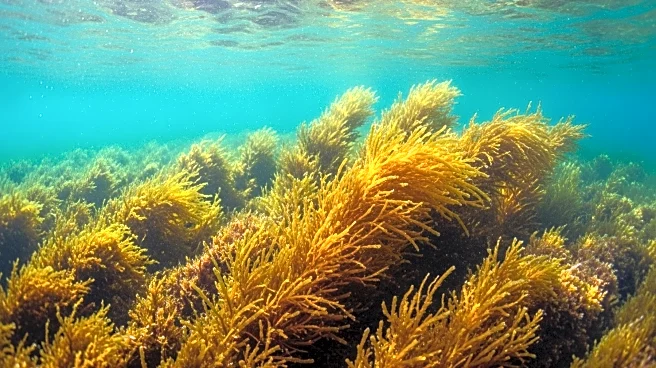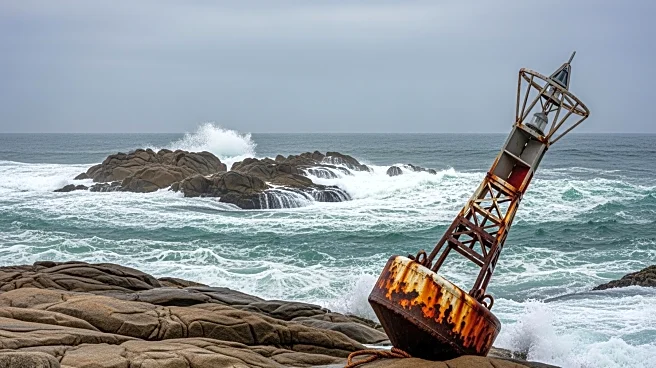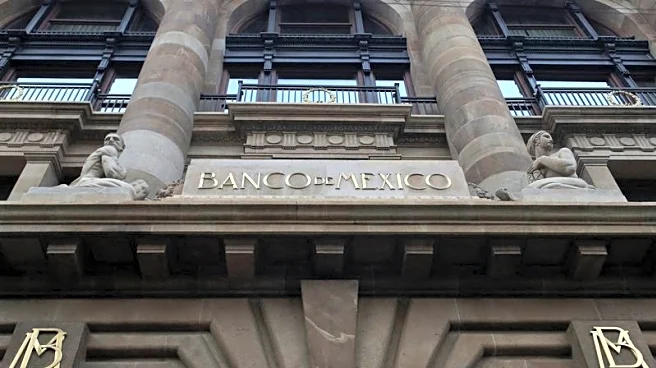What's Happening?
Hans-Josef Fell, a former German Parliament member, has proposed using macroalgae for large-scale CO2 sequestration to combat climate change. The Energy Watch Group's research suggests that floating macroalgae can remove significant amounts of carbon, potentially bringing the Earth back to below 1°C above pre-industrial levels. The report highlights the potential for creating large seaweed farms in subtropical gyres, which could permanently remove CO2 and create new marine habitats. The biomass produced could replace fossil fuels and increase global food security, offering a sustainable marine economy, particularly for countries in the Global South.
Why It's Important?
The proposal to use macroalgae for CO2 sequestration presents a novel approach to addressing climate change, offering a potential solution to reduce atmospheric carbon levels. This method could complement existing renewable energy and electric vehicle initiatives, providing a comprehensive strategy for environmental protection. The development of seaweed farms could lead to economic opportunities, particularly in developing regions, by creating new industries and enhancing food security. The approach also aligns with global efforts to reduce reliance on fossil fuels and promote sustainable practices.
Beyond the Headlines
The use of macroalgae for CO2 sequestration raises ethical and environmental considerations, including the impact on marine ecosystems and biodiversity. The feasibility and scalability of such projects require careful evaluation to ensure they do not inadvertently harm ocean habitats. Additionally, the integration of macroalgae into existing climate policies and frameworks will be crucial for its successful implementation. Long-term monitoring and research will be necessary to assess the effectiveness and sustainability of this approach.










